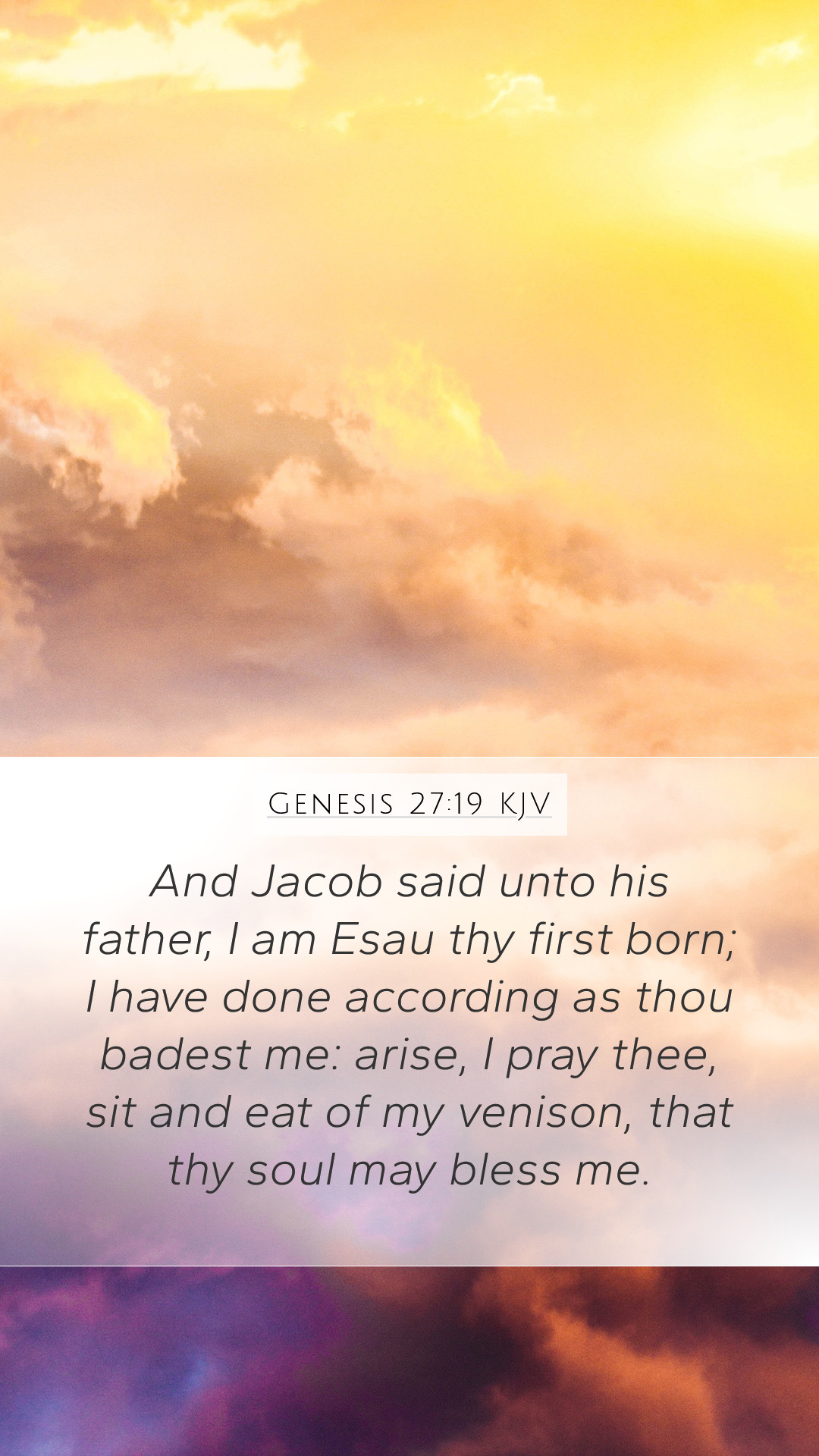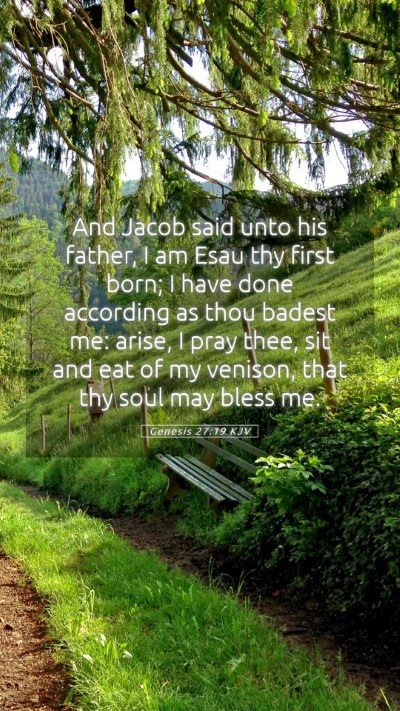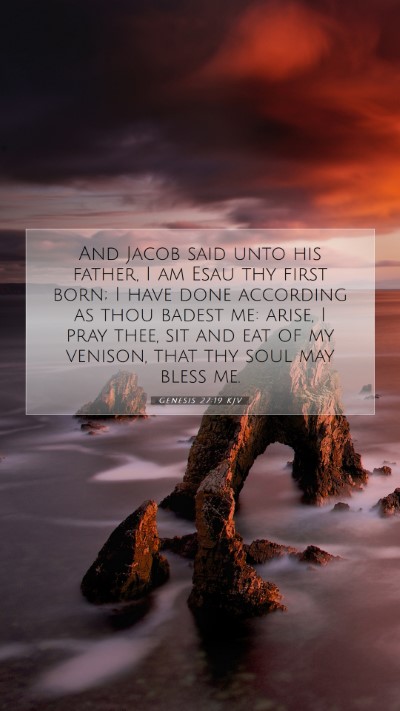Understanding Genesis 27:19: An In-Depth Bible Verse Commentary
Bible Verse: Genesis 27:19 - "And Jacob said unto his father, I am Esau thy firstborn; I have done according as thou badest me: arise, I pray thee, sit and eat of my venison, that thy soul may bless me."
This verse captures a pivotal moment in the narrative of Jacob and Esau, showcasing themes of deception, identity, and the quest for blessing. Herein, we delve into a comprehensive analysis utilizing insights from notable public domain commentaries.
Verse Meaning and Analysis
This verse is part of a larger story where Jacob, driven by the desire for his father Isaac's blessing, impersonates his brother Esau. The action of Jacob can be seen as a complicated interplay of destiny, family dynamics, and moral choices.
Commentary Insights:
- Matthew Henry's Commentary:
Henry emphasizes the severity of Jacob's deception, noting that while he sought the blessing, his method lacked integrity. He points out that God had foretold that the elder would serve the younger, yet Jacob's means to achieve this promise through deceit illustrates the complexities of divine providence versus human action.
- Albert Barnes' Notes:
Barnes highlights the roles of both Jacob and Isaac in this scenario, stressing how Isaac's partiality contributes to the unfolding events. He also discusses the implications of Jacob's self-identification as Esau, revealing deeper themes of identity and the consequences of misleading one's own family.
- Adam Clarke's Commentary:
Clarke provides a linguistic analysis, interpreting the term “venison” and its connection to cultural customs regarding blessings and meals. He underlines Jacob's cunning nature and the moral dilemmas posed by the actions of all the characters involved, including Rebekah's role in enabling the deception.
Key Themes
- Deception and Its Consequences:
This verse exemplifies the lengths to which individuals might go to secure what they desire, often leading to unforeseen repercussions in their relationships and future.
- Identity and Legacy:
The act of Jacob claiming to be Esau speaks to the larger biblical themes of identity, inheritance, and the significance of names and blessings in Hebrew culture.
- Divine Providence:
The tension between human efforts and divine plans is a recurring theme; the deceitful actions of Jacob serve to initiate future conflicts and highlights the struggle for God’s intended outcomes through flawed human choices.
Historical Context
The cultural backdrop of Genesis is crucial for understanding this passage. The significance of birthright and blessings in ancient Israelite society lays a foundation for this story. It was customary for the firstborn to receive a double portion of the inheritance, which in essence was not just a material benefit but carried spiritual and familial significance.
Cross References
- Genesis 25:29-34 - The sale of Esau's birthright
- Genesis 27:1-4 - Isaac's intention to bless Esau
- Hebrews 12:16-17 - Esau’s lost blessing and its implications
Application of Genesis 27:19
This verse poses significant questions for personal reflection: How do we navigate our desires in light of integrity? What do our choices say about our character and faith? Additionally, it encourages us to examine the reality of seeking blessings—both divine and earthly—and the ways we pursue them.
Conclusion: Insights for Bible Study
In the pursuit of understanding Scripture, Genesis 27:19 serves as an essential verse illuminating the intricate dynamics of family, identity, and morality within the biblical narrative. Engaging with such texts provides valuable lessons for contemporary believers.
For those involved in Bible study groups or seeking Bible study resources, this analysis enables a deeper understanding of scripture, helping individuals to reflect on how to interpret Bible verses effectively.
In looking at the significant themes of deception, identity, and divine providence, this exploration encourages a meticulous examination of the meaning of Bible verses and how to apply them to daily life.


